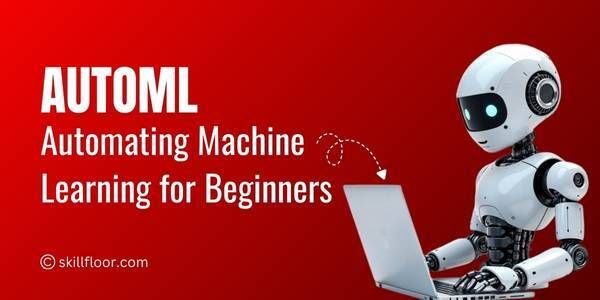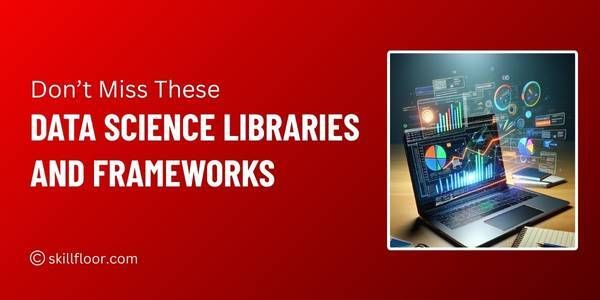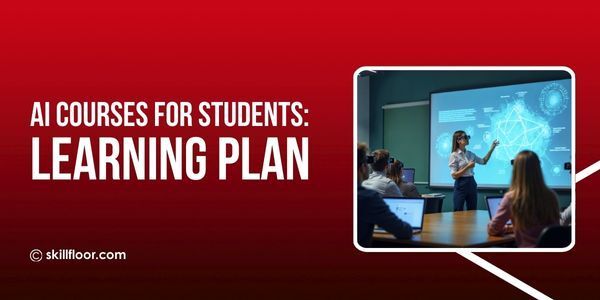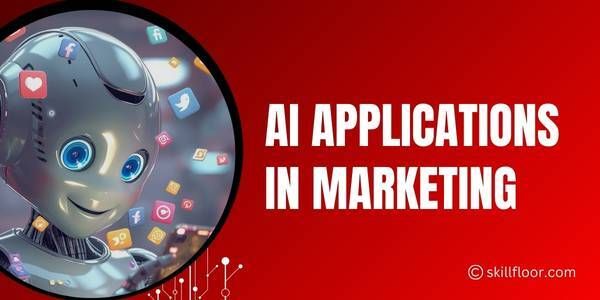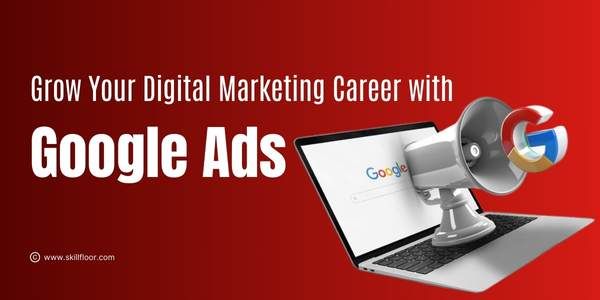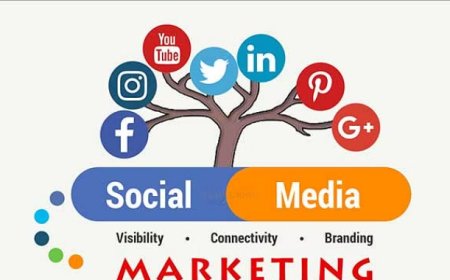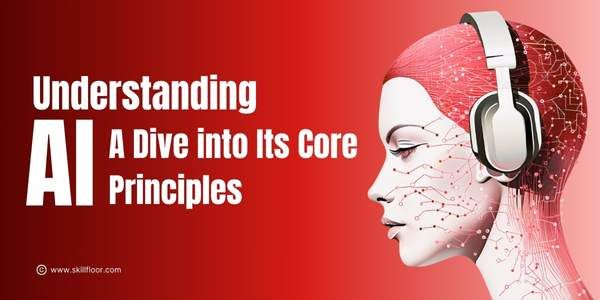The Impact of Artificial Intelligence on Digital Marketing
Explore the profound impact of artificial intelligence on digital marketing. Discover how AI revolutionizes strategies and keywords to stay ahead in this field.
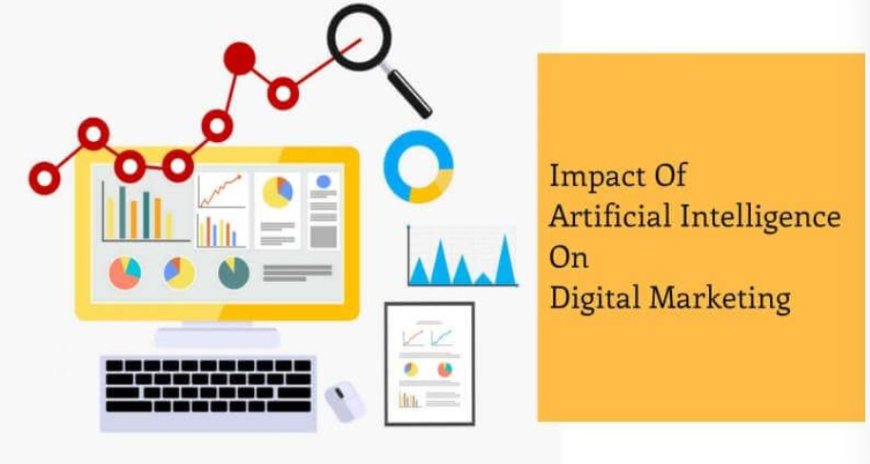
In an era marked by rapid technological advancements, the marriage of artificial intelligence (AI) and digital marketing has emerged as a transformative force. As AI technologies continue to evolve, they are reshaping the landscape of marketing strategies, customer interactions, and data-driven decision-making. we'll delve into the profound impact of artificial intelligence on digital marketing, exploring the ways it's revolutionizing the industry.
Understanding Artificial Intelligence in Marketing
Artificial Intelligence (AI) is transforming the landscape of digital marketing by leveraging advanced algorithms to process data, analyze patterns, and make informed decisions. This technology enables marketers to create personalized experiences for customers, optimize campaigns through predictive analytics, enhance customer service with chatbots, and automate tasks such as content creation and programmatic advertising. AI's integration in digital marketing streamlines processes, drives efficiency, and empowers businesses to deliver more relevant and engaging content to their target audiences.
Enhanced Data Analysis and Insights
Artificial Intelligence (AI) has revolutionized data analysis, allowing marketers to extract meaningful insights from vast datasets at remarkable speed and precision. By leveraging advanced algorithms, AI empowers businesses to uncover hidden patterns, customer behaviors, and market trends. This capability enables data-driven decision-making, helping marketers tailor strategies to specific audiences and optimize campaign performance. With AI's enhanced data analysis, businesses can gain a deeper understanding of their customers and stay ahead in the competitive digital landscape.
Personalization at Scale
Personalization has become a hallmark of successful digital marketing. Personalization has transcended from a buzzword to a strategic necessity. With the aid of artificial intelligence and advanced data analytics, businesses can now achieve personalization at an unprecedented scale. By harnessing vast troves of customer data, AI algorithms enable brands to craft tailored experiences, content, and offers for each individual. This not only boosts customer engagement but also drives higher conversion rates. The result is a harmonious blend of technology and human interaction that resonates with consumers on a deeply personal level, fostering loyalty and propelling brands toward success in the digital age.
Chatbots and Customer Service
Chatbots have emerged as invaluable assets. These AI-driven virtual assistants provide instant responses, guiding users through queries, troubleshooting, and even facilitating transactions. By offering round-the-clock support, chatbots enhance customer experiences, reduce response times, and free up human agents to tackle more complex tasks. Their ability to learn and improve over time ensures that interactions become increasingly efficient and tailored to individual needs. As a result, businesses can provide seamless and efficient customer service, boosting satisfaction and loyalty.
Predictive Analytics
Predictive analytics in marketing harnesses data-driven insights and advanced algorithms to anticipate future consumer behaviors and trends. By analyzing historical data, AI-powered models can forecast outcomes, enabling marketers to make informed decisions about campaigns, personalize experiences, optimize content strategies, and allocate resources effectively. This approach empowers businesses to stay ahead of market shifts, improve customer engagement, and enhance overall marketing ROI.
Content Creation and Curation
Artificial intelligence has revolutionized content creation and curation, streamlining the process and enhancing its effectiveness. AI-powered tools can generate reports, product descriptions, and even articles, saving time and resources for businesses. Moreover, AI algorithms can curate content from diverse sources, providing audiences with relevant and engaging information tailored to their interests. This technology not only accelerates content production but also ensures that audiences receive valuable, up-to-date insights, enriching the overall user experience.
Search Engine Optimization (SEO)
Search Engine Optimization (SEO) is a digital marketing strategy aimed at improving a website's visibility on search engines like Google. Through careful keyword research, optimizing website content, meta tags, and building high-quality backlinks, SEO aims to enhance a website's organic search ranking. By aligning with search engine algorithms, businesses can increase their chances of appearing at the top of search results, driving more organic traffic and potential customers to their websites. SEO is an essential tool for maximizing online presence and ensuring that a website is easily discoverable by users actively searching for relevant products, services, or information.
Programmatic Advertising
Programmatic advertising is a revolutionary approach that harnesses the power of artificial intelligence to automate ad buying and placement. This method optimizes campaigns in real time, targeting specific audiences based on their behaviors and preferences. By analyzing vast data sets at lightning speed, programmatic advertising ensures ads reach the right people at the right moment, maximizing efficiency and enhancing campaign effectiveness. This precision-driven strategy not only saves time but also enables advertisers to allocate resources more strategically, delivering tailored messages that resonate with audiences across various digital platforms.
A/B Testing and Optimization
A/B testing, bolstered by artificial intelligence, has become an indispensable tool in digital marketing. This method involves comparing two versions of a webpage, email, or ad to determine which performs better with a specific audience. AI algorithms can swiftly analyze user interactions, providing insights on which version is more effective. Through continuous A/B testing and AI-driven optimization, marketers can refine their strategies, boost conversion rates, and ensure their campaigns remain relevant in an ever-evolving digital landscape.
Beyond the Horizon: Future Implications of AI in Digital Marketing
As the journey of AI integration in digital marketing continues, several exciting trends and implications are emerging that promise to reshape the industry even further.
Hyper-Personalization: AI's ability to analyze vast datasets allows marketers to create hyper-personalized experiences for customers. Through advanced segmentation and individual profiling, businesses can tailor content, product recommendations, and offers to each user's unique preferences and behaviors.
Voice Search and Conversational AI: The rise of voice-activated devices and virtual assistants is shifting the way people search for information. AI-driven conversational interfaces are becoming increasingly sophisticated, enabling brands to engage with customers through natural language interactions. This trend requires marketers to optimize content for voice search and adapt their strategies to accommodate this new user behavior.
Visual Search: Visual search is gaining traction as AI-powered technologies can recognize and analyze images to provide relevant search results. This has significant implications for e-commerce, allowing users to search for products simply by snapping a photo or uploading an image.
Marketing Automation Evolution: AI-driven automation is evolving beyond basic scheduling and triggering tasks. Marketers can now automate complex workflows, lead nurturing, and customer journeys, optimizing interactions and improving engagement across multiple touchpoints.
Ethical Considerations and Transparency: As AI plays an increasing role in decision-making, marketers must address ethical concerns related to data privacy, bias, and transparency. Maintaining consumer trust requires responsible AI usage and clear communication about how AI is used in marketing efforts.
Continuous Learning and Adaptation: AI's self-learning capabilities mean that algorithms can adapt and refine themselves over time. Marketers can take advantage of this by continuously improving campaigns, strategies, and customer experiences through AI-driven optimization.
Collaboration Between AI and Humans: Rather than replacing human marketers, AI tools are designed to complement and enhance their efforts. The collaborative synergy between human creativity and AI's analytical power will likely lead to innovative and effective campaigns.
The fusion of artificial intelligence and digital marketing is propelling the industry toward new heights of efficiency, personalization, and innovation. As AI technologies continue to evolve, marketers must embrace these advancements to remain competitive in a rapidly changing landscape. From data analysis and customer engagement to content creation and advertising, the impact of AI on digital marketing is undeniable. Those who harness its power will be better positioned to connect with audiences, drive conversions, and unlock the full potential of the digital realm. As we move forward, AI's role in shaping the future of marketing is both exciting and full of endless possibilities.

























